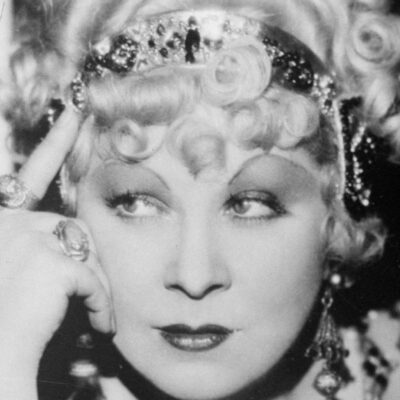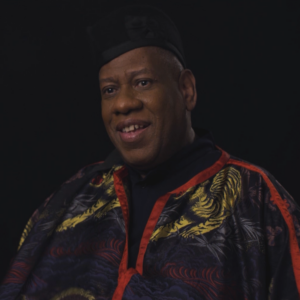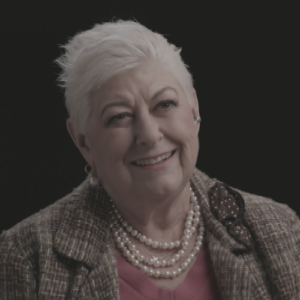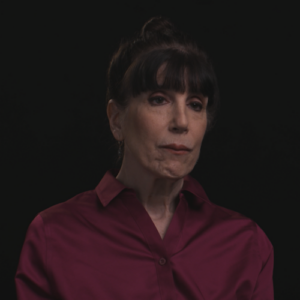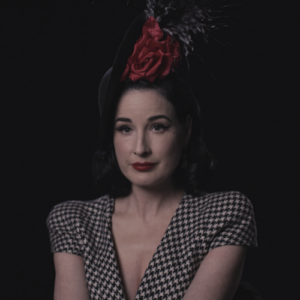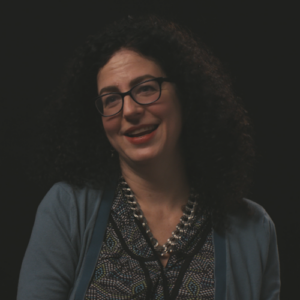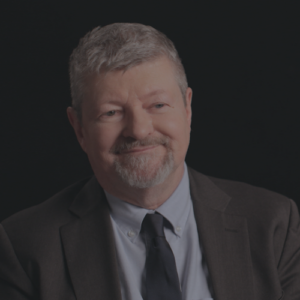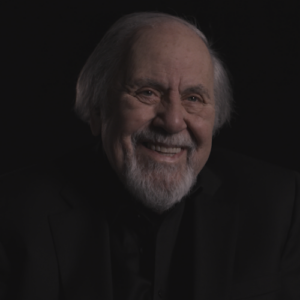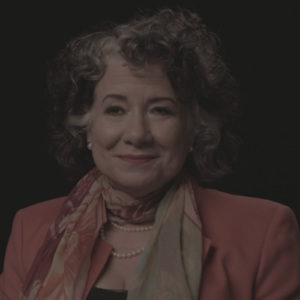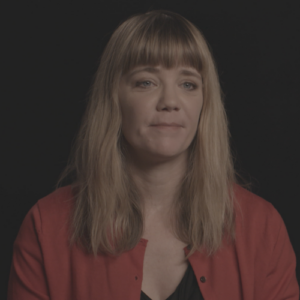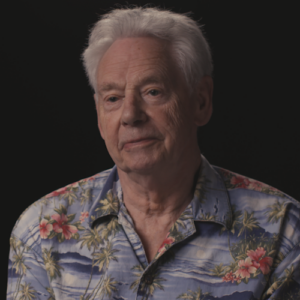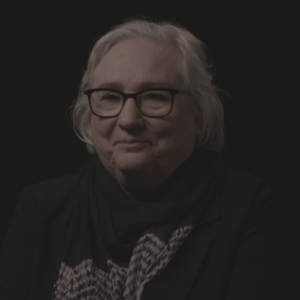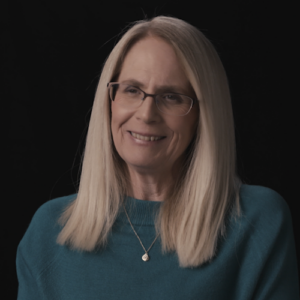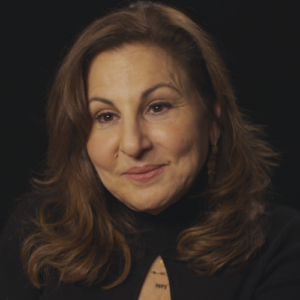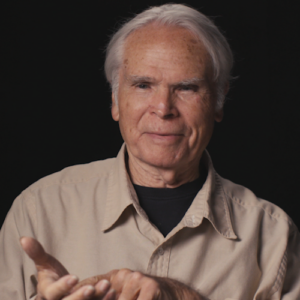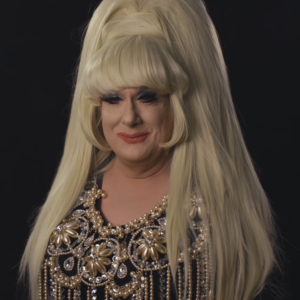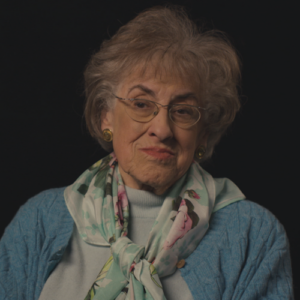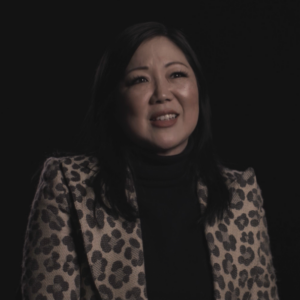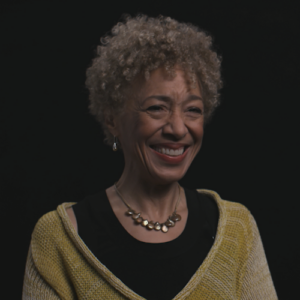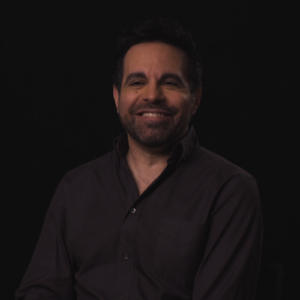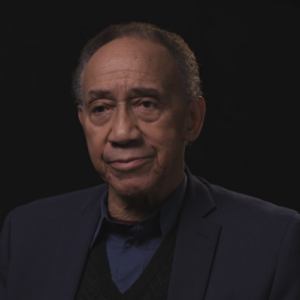Interviewer: So, you know, the initially the reason I wanted to sit down with you was that I had read that at some event somebody asked you about Mae West and you talked about how she influenced you. Mm hmm. Curious about that.
Erica Jong: You know, in life, there are people who think sex is natural and good and they are always in a minority. And most people get so screwed up that that sex, they get the wrong message from their parents and they think it’s something bad and dirty and they don’t embrace the whole of themselves. And the thing about Mae West is she did not think sex was dirty. She did not think women should be demure. And she said what she thought. And it became her password to fame. So, you know, you know her her famous quotes or do you? Yes. Are you packing heat or are you just glad to see me? There’s another quote that I like even better. Love is like a magic trip trick once you know how it works. It’s no fun anymore. That’s my favorite. And basically, it’s about if you’re a lusty woman and you like sex and you believe you’re entitled to pleasure, you have a different attitude toward the world. And that attitude is on common. Really, it is. I mean, a friend of mine says there are maybe 10% in the view of people in the world who love sex and are not afraid to love sex. And all the rest of the people never go to bed with them because they think sex is dirty and they’re guilt ridden and they and you won’t have fun with that.
Interviewer: They’re going to be pretty terrible in bed.
Erica Jong: Right.
Interviewer: Well, do you remember when you first learned about my wife?
Erica Jong: I don’t remember. I have no idea. She was always on my radar because I liked old movies. And if you like old movies, you can’t avoid Mae West. And I don’t know. I mean, I don’t know a lot about her bio. I don’t know how she evolved her persona. I don’t know that. But I know that what she put out there was I love life. I love men. I love sex. And I was considered a bad feminist in the second wave. Why? Because I like to dress like a woman. Because I always liked men. And I was considered a bad feminist. I didn’t go around saying they’re all rapists. This was in the generation of Andrea Dworkin. And I remember once interviewing Andrea Dworkin for Mars magazine, and I said, Andrea, you say all intercourse is rape. Where did you get that idea? And we delved and delved, and it turned out she had been raped. And after she was raped, she gained like £300, which is actually quite common. And what I see in Mae West is a woman who says, I’m a woman and sort of like Sojourner Truth and a woman. And I know being a woman is a great thing. And I’ve always felt that, yeah, when I was a kid, I wanted to be a male hero because all the heroes in books were male except for Nancy Drew. Right. And so I identified with the boys who went out and, you know, ruled the world. Those were the boys I identified with. But and we didn’t have enough female heroes then. I maybe you’ve read about the superwoman myth. It was a menage a trois that invented Superwoman. Have you read Jill Lepore this book? There were two women and a man, and they lived together in a may now show Trois. And they invented Superman. They were totally radical, and they felt that too many of the superheroes were male. And we need a female superhero. And they went out and invented Super Woman. And it seems I don’t really know what their sexual relationship work was, where the two women lovers were, the three of them lovers. I can’t remember. There’s a wonderful book by Jill Kapoor about the superwoman myth. But and I read it a few years ago, and I don’t remember what they were doing in bed, literally. And I don’t even think it matters. But they were living together called Gillette, which is very rare. Let’s face it. And usually in open marriages, everything breaks down sooner or later because somebody gets jealous. But apparently, this threesome continued for years. What I’m really trying to say is, if you’re a person who believes you’re entitled to pleasure. You get it? And many women don’t believe they’re entitled to pleasure and they fall in love with bad boys. And bad boys can be very sexy, but after a while it gets old. When I turned 40, I was divorced from my daughter’s father and I turned 40 and I decided I’m going to give myself a 40th birthday present, a 26 year old actor. And we lived together for about four years. And at a certain point, I threw him out. Why did I throw him out? I found he had guns in the attic and I had a beloved little girl. And I did not want somebody who had guns in the attic living in my house. And my my daughter’s nanny said to me, Oh, that’s the best thing you ever did, throwing them out. But what I’m really trying to say is, if you feel you’re entitled to sexuality, you get it. And if you only want men who abuse you, you’ll find plenty of those. And I would say I’ve been married four times. The last marriage I’ve been with can for 30, nearly 30 years. I have never married a man who didn’t like my writing, who didn’t appreciate my smarts, and I never would. This guy, the 26 year old actor. Yeah, we had a lot of fun. He was a constant erection. But when I discovered that there were things about him I didn’t like, and also he was cheating on me out. Not interested. I don’t want to be abused. But the women who get turned on by abuse find abuse. I’m not saying that I dispute the MeToo movement. I don’t. I know there are many, many, many women who have been abused by men who have power over them, women who work in the hotel business. They are victims of abuse all the time by the staff and by men who rent hotel rooms and whatever. I don’t dispute MeToo, and I think we need to have laws that empower women against abuse. Absolutely we do. And there are some women who keep on with the bad boy thing past 13 years, and I think they need help. Really, Because bad boys don’t make good husbands or fathers. They’re too involved in being in love with their own. They will never unless they get past that. Look at Donald Trump. They will never be of any use to any woman or child. I mean it. But. The kind of man you want to spend your life with is someone who is excited by your brain and excited by your body. Both. And that’s not so easy to find. But if you really believe in yourself, you find a. And Mae West means that to me.
Interviewer: But she’s this woman who’s, you know, she’s this big presentation with her body and does not pretend to be a dumb blond like her. Her intelligence is very out there. Is there something threatening about that to men, especially when it’s in the guise of humor?
Erica Jong: Some men are threatened by it, but who wants to live with men who are threatened by humor? Honestly, Who wants to live with men who are threatened by brains if you’ve got a brain? I say good riddance. Yes, there are men who are threatened, but there are men who are threatened and they’re a lot more fun.
Interviewer: But is it is it fair to say that that comedy is a kind of a weapon?
Erica Jong: We all need weapons. I mean, women need weapons more than anybody, let’s face it. And people who say that kind of comedy as a weapon are just trying to disempower the female sex. Right. And by the way, in in America, we don’t have an Equal Rights Amendment yet. We don’t have parental leave. That is really helpful. We don’t have daycare for everyone. Many, many countries in the world have these things. The U.K. has them. France has them. Italy has. I mean, really. Who’s going to take care of the kids?
Interviewer: Well, do you think that was made trying to change how women thought, how people generally thought of gender roles? Do you think that was actually an agenda of hers?
Erica Jong: I can’t tell you that she sat down with a philosopher and said, This is my agenda. Actresses, comedians do not have agendas. They’re working on their gut, right? They discover that they have a way of being funny that gets attention. I don’t think they puzzle it out like philosophers. They discover. I don’t know if you’ve read a lot of books about this, but if you think of Steve Martin, he’s a perfect example because he’s a very good writer as well as comedian and banjoist. He discovered when he was playing the banjo and he was very good at it, that he could do a patter that broke people up. And he discovered that he had the wherewithal to make people laugh, to play music and to act. And he describes it in his autobiography. And I think that’s the way comedians evolve. They they discover they have this gift and then they amp it up. It’s like it’s sort of like being a writer if you can write the way you speak. Which many young writers can’t. In fact, whenever I teach my course how to write the story of your life, I say, If you can write like you speak, you’re halfway there. But most writers start out imitating the writers they love. My first novel was an imitation of Vladimir Nabokov because in my twenties I read nothing but Nabokov. I loved him. I wanted to be Nabokov, and I wrote a novel called The Man Who Murdered Poets, and I took it to my editor at Hult, who had published two volumes of my poetry, and I gave it to him and I said, This is my novel. And he said he read it and he said, It’s very well written. And anyone would publish it, Go to Farrar. Straus They’ll publish it. I won’t. And I said, But you said it was well written. What are you talking about? He said, Why are you writing from the point of view of a male protagonist? And I said, But Bellow and Roth and all the writers that people love write about male protagonists. And he said, I want you to go home and write a novel in the voice of your amazing poems, A woman’s voice, funny and lusty and brave. Go home and write that novel. And when he said that to me, I knew he was right. And I put aside that novel. I never made any attempt to publish it. None. I knew he was right. He said, Write in the woman’s voice you’ve invented in your poetry. And that was fear of flying. And it was my second novel. It was not my first people. You know, I shelved that novel. And I’ve always gone on writing poetry because it’s the source of everything I do. My next book of poetry will be out in April, and it’s called The World Begins With Yes, The World began with Yes. And it’s about the fact that if you don’t say yes to life, you have nothing to write. And that was my story. You can’t say yes to life if you suppress your sexuality. You can’t say yes to life. If you worry all the time about being fat. You know, women’s bodies change. We get thin. We develop breasts. We lose. We lose our shape when we get pregnant. And I never felt more beautiful in my life than when I was pregnant. And people would stop me on the street because I walked along the street as if I owned the world. Women change. The thing about women is we become different women. As we age, we. We’re little girls. We’re young women who feel hormones in our bodies.
Interviewer: But Mae West didn’t.
Erica Jong: What?
Interviewer: West arguably didn’t. I mean, what do you make of the fact that she, you know, this persona that she that she kind of creates and comes to really embody? She dresses like that for her whole life?
Erica Jong: Well, that’s she’s a performer. Performers are different from other people. Performers can’t stop performing. I’ve known many and I love them. I love actors and I love comedians, although they’re very depressed, most of them. But I have to tell you that when you’re a performer, you’re always performing. That’s different. And we don’t know what she was like when she wasn’t on the screen. Maybe she was, you know, drinking her beer and weeping. Like so many comedians, we don’t know that.
Interviewer: Do you? What do you think of her continuing to embody that role, really until I mean, she has her last movie a few years before she dies.
Erica Jong: I think it’s inevitable with performers. They find something that works and they keep doing it. I wouldn’t judge that. That’s part of their creativity. Look, to get back to Steve Martin. What did they do to him? They made him a comic actor. And he’s good. But he was much better as a comedian. I mean, when you’re a performer, you have to find your voice. You have to find what you do best, and then you have to find work for it. I don’t blame them for staying in. Look at Charles Chaplin. Did he ever change his thing? A little bit. He became a more serious filmmaker. Maybe. But did he ever get get rid of the guy with the top hat and the mustache and the cane? No. That is a performer. That’s what they do.
Interviewer: Well, I’m curious what you would. We’ve heard two to things very at odds with each other just in the last few weeks during this project. So one woman that we interviewed who she’s talking about saying the problem is how younger women are viewing them. But then we interview somebody else who’s in their eighties the other day and she says, no. The problem is that when older women fantasize, they imagine themselves younger. And seeing Mae West being sexual in her eighties ruins that fantasy. Look.
Erica Jong: If you’re a critic, you got to criticize. Look, I got my Ph.D. at Columbia. I fled the Ph.D. program because I thought, if I stay in the D. Program, I will never write a line. The nature of criticism is to criticize and theorize. That is not the nature of performance. If you are a performer, you find something that works and you do it. You don’t sit around thinking, Will it please Gloria Steinem? Will they think she’s a good feminist or bad form? I was always considered a bad feminist during the second wave. Now the millennials love me. They say I’m an inspiration. That is the problem with critics. Criticism is there to criticize. And I have to say that women most women have brains and they have bodies. And they want literature that shows that. My aim was always to write the books that don’t yet exist for women. And I’m not a theoretician. I am trying to. Show women their lives, their inner lives, and their outer lives. And I think that’s very important. And then a woman can use her brain and use her body and. I think that we are the primary sex. We are not the second sex. We can make life and our bodies and we become most powerful as grandmothers. And I kept thinking that when Hillary was running, she should have said the Native Americans who first settled this country had a council of grandmothers who decided on war and peace. The Braves fought the war, but the grandmothers decided what wars were worth fighting and what wars were not worth fighting. Grandmothers have saved the human race. A time and time again. Do you know why women live longer than men?
Interviewer: Because we deserve it.
Erica Jong: Because grandmothers are needed for our survival. In fact, in Science Times, in the New York Times, which is the first section I always read, an anthropologist whose name I forget said. What did the grandmothers do? They lived 20 years, 30 years longer than the men. Why were they necessary? Not to kill the big animals because that was a very infrequent occurrence, whether the women were hunters or the men were hunters. But because human beings for many centuries subsisted on tubers, potatoes, sweet potatoes and white potatoes, and they are buried in the earth. And who dug them up? Not the nursing mothers, not the father. The grandmothers dug up the tubers, brought the tubers, learned how to cook them. And the human race survived because of potatoes. And there are still many places in the world where sweet potatoes are in the main diet. I honestly think I can’t remember who was this anthropologist, probably a woman. And she’s said, we always imagine the cave days as the women sitting in the cave, nursing babies and the men going out and killing these huge animals. Well, it wasn’t like that at all. The main diet of people in the hunter gatherer world were tubers and who dug them out of the earth? The ground was. Makes sense to me.
Interviewer: It makes sense to me to. But I. But I want to stick with the idea for a minute of just the sexuality of older women. Something I. Listen, you talked about how.
Erica Jong: Where there is sexual but finding young men too, because it’s not that easy.
Interviewer: So what does it say about us that as a society that we have such a strong negative reaction to the sexuality of?
Erica Jong: I don’t.
Interviewer: But, you know.
Erica Jong: But who does? Young men.
Interviewer: Amen.
Erica Jong: Amen. They’re scared to death of their mothers. The problem is that in this in America today, everybody has denied the existence of the unconscious. They can deny are all we you know, all they want. We have one. So. They deny it. They deny fraud. They deny all the people who followed Freud. We do have an unconscious.
Interviewer: So what did Mae West do for us? What was what is her main legacy?
Erica Jong: I think what people liked about her, she was funny. She was female. Positive. That in itself is very inspiring. If you think of all the wilting roses that were popular in that era and film, she showed the brazenness of women, the humor of women, the openness of women. I think that’s a great contribution.
Interviewer: I agree. Something you said I thought was really interesting. So the sense of power is central to the creation of humor.
Erica Jong: To that if you if you want to write the story of your life, you have to believe it’s worth channeling. Whenever I teach my course how to write the story of your life, someone comes up to me, usually a young woman, and says, I’m going to write about my father in the Korean War. Or the older people might say, The older women might say, I’m going to write about my grandfather in the Second World War. And now I’ve stopped saying anything about it. I used to say, Why not tell your own story? They go out and they try to write about their father grandfather, because they presume in a sexist society that the man fighting a war is more important than the woman living a life. Right. And then they come back to me and they say, I tried to write this story, but I don’t really know what was going on in his head. Right. And I say, How about your own story? What’s going on in your head?
Interviewer: And she says, I don’t know that either.
Erica Jong: No, She says, I never thought that was worthy of writing about.
Interviewer: That’s out.
Erica Jong: That is the way a sexist society disempowers women. That is a woman who has absorbed the negativity of a sexist society. I had to when I wrote a novel in the style of Nabokov and brought it to my editor at Holt, who had published two volumes of my poetry and really loved my work. It never occurred to me that writing in a male persona was like saying a woman’s persona is not interesting enough. And then he because he was very smart. He was Saul Bellow was the editor and Philip Roth’s editor and the editor of so many brilliant writers, I can’t even tell you. And he sort of adopted me and said, What you were put on Earth to do is to write in a woman’s voice. And I did. And I knew in that weird way, you know, when somebody criticizes you and they’re right, I put the other book aside. Now, I’m interested in men. I love men. And I’ve written many poems about men. My grandfather was a portrait painter. My father was a musician. I think that the reason I love men is because my grandfather adored me, and my father adored me. When my father was alive, he used to go into bookstores and put my books on top of other people’s book. He was so proud of me. I used to paint by my grandfather’s side. I grew up in a big family, a European style family with my grandmother, my grandfather, my mother and my father and my two sisters. And it always felt normal to me to be nurtured by men. Normal. And my grandfather worked at home because he was a painter. So why? Do I feel confident about being a woman? Because two men loved me.
Interviewer: And that’s one of Julie’s. And my favorite things about the Mae West movies is how in the beginning there’s 10 minutes where and she writes this, where all anybody is doing is talking about the powerful woman that ever walked the earth. She writes that for herself. There’s there’s so many female comedians. It’s about this kind of self denigration as the opposite of what she was doing. Do you think that’s partly why she was so?
Erica Jong: I think that was revolutionary. You know, when Joan Rivers started, she did a very self-deprecating humor. Do you remember that when Edgar was alive? And I met them both when I lived in California. I always liked Joan. I always liked Edgar, too, although he was terribly depressed guy who later killed himself. But at the beginning, Joan’s humor was kind of sexist humor. It was. My husband never make love to me. We used to chase each other around the house when we were first married. Then it was. I’ll chase you later. Do you remember that? I’ll chase you later. We can make love. And it would be years between making love. Later, when? After Edgar committed suicide and she was alone with her daughter, she never remarried. She had many beaus. I know that. But she moved back to New York, away from Hollywood. The most sexist place on the planet. And. She checked, her humor changed. If you saw the the wonderful documentary that was done about her, she began to embrace her femaleness. She said, Why did I get a facelift? The the cameras changed. You couldn’t any longer blur stuff, right? She was fabulous. And she embraced herself and Melissa as women in a totally different way. She grew into a kind of self-acceptance, which she did was revolutionary, was she liked herself as a woman. She liked herself. She didn’t think women were the second sex. She believed, as I do, that we are first. We can have babies. We can be grandmothers. The men are gone. And we become the tree of life to our grandchildren. I have four grandchildren. It’s the best thing I never did.
Interviewer: Or in Mays case, you can choose not to be a mother at all.
Erica Jong: That was her choice. But the fact of the matter is that we have choices and we we live very long. We can have many lives. My Aunt Kitty, who was another painter in my family, was married to a man for the first half of her life. For the second half of her life. She lived with the woman and. Later in her life, we had to put her in the Hebrew home for the aged because she was losing her memory. She drank too much. She had memory loss. She fought tooth and nail against being put in the home. And when I went up to visit her in the Hebrew home for the Aged, she was sitting with her hand on a man’s knee. There weren’t many men left. There were one or two. And all the rest of the old people were women. She was a pansexual woman. She loved people. She loved women. She loved men. I would hope to be like my Aunt Kitty.
Interviewer: So two of yet to meet was recently describe a man recently described to us that Mae West as not being male or female, but a third gender, but with a third gender.
Erica Jong: I don’t think she was a third gender. I think she was a woman who liked being a woman. And there should be a lot more of us. As are society’s sexist women as well as men are sexist, which is why so many women have such a hard time working for women should not be that way. My assistant Jessica brings her little girl to work, has brought her to work since she was two months old. She’s breastfeeding. She’s. They’re completely there. And it’s and people say, how do you let your sister work with the baby? I say what she’s supposed to do with the baby. Throw her out the window. Everybody in my home where my office now is, is in love with Elsa maria Cappuccino, as we call her. Elsa Maria first came to the office when she was two months old, and she was at her mommy’s breast. She’s still there. Two years old. She will turn to on the 1st of January. Of course, there will come a time when she has to go to playgroup or nursery school, but nursery school only lasts half a day. So what are we going to do with her? She’s going to come in the office.
Interviewer: This is a bit of a tangent, but I really want to get your input on this. In the seventies, it seems like, especially around that, like 70 to 73 where those books come out, people start looking at women start looking at memoirs through a very different lens, right? What was happened was that there.
Erica Jong: Was a fair. Look, critics got to criticize and that’s their job. So they’re going to come on and say, oh, it’s not feminist, Oh, it’s not this. It’s not that, whatever it is. That’s their job. Film studies or they. I mean, I could live without film studies. Some of my best friends teach film studies, and I go and talk to their students because I love my friends. But really.
Interviewer: Well, they’re saying that.
Erica Jong: I’ve read all these books on Charlie Chaplin books that say he was a communist. Books that say he was open, books that say he was an abuser of women. Take your pick.
Interviewer: Well, it seems like the the criticism of me back then was that that her power was rooted in men. You agree with that?
Erica Jong: No, I don’t. Her power was rooted in power. Can we say she liked herself? She liked having breasts. She liked being curvaceous. Most women in our society. I made a film once in England, a little film about body image among women. I made it for Channel four UK, and I started with Marlena Dietrich when she was a film, a film artist in Berlin. She was enormously zaftig, and I showed the club clips of the film of her films. She was zaftig. She had big boobs. Then she came to Hollywood and she lost £40 and became angular. Why? Then I. I moved on to the women of the thirties who were very powerful in film. Many of them. Look, you even had Ida Lupino, who was a beautiful actress who also made movies. In the seventies, no women were making movies. Right. And then you come to the actresses of today, most of them, like Emma Stone, are skin and bones. Why are they skin and bones? Well, because the camera puts on weight. That’s why do women really look like that? Most do not. Okay. So you have Marlene Dietrich in Berlin. She’s allowed to have breasts. She comes to Hollywood. She’s skin and bone. Right. How do we really look? And are we allowed to look on film the way we really look or not?
Interviewer: So what was made doing in the thirties that was different from the other big women? Of that.
Erica Jong: Big women.
Interviewer: Big popularity was.
Erica Jong: Big women were. We’re comical, not sexual. And the two were apart at that time. I don’t believe in that.
Interviewer: Was made the first. Is it legit to say that she was the first sort of comical woman who was also big and also sexy?
Erica Jong: I think so. I mean, look, most film actresses are like little stick figures.
Interviewer: And that was a case then to look at.
Erica Jong: You know, look at Emma Stone, look at Keira Knightley, who is so marvelous in that Collette movie. But she’s not allowed to be bigger because we have high definition TV, we have high definition cameras. And, you know, if I wanted to be an actress, I would have had to be skin and bones.
Interviewer: So. So when she.
Erica Jong: I never wanted to be an actress. Never any interest in it. But. Okay. But. I like the way I am. I’ve had a lot of men in my life and nobody ever said lose weight. Nobody. Men like you to have a big a big behind and breasts. And it’s a lie that they don’t.
Interviewer: So when she. You know what? She is very different when she’s on Broadway. You know, she it’s a small audience, this very select audience. Once she becomes a big movie star, what is she doing that is that is so different.
Erica Jong: She likes herself. For women in a sexist society that is rare and women would come out of the theater and say, I like myself. I’m funny. I’m zaftig. I’m whatever. I wish there were more women who felt that way about themselves.
Interviewer: Are there any performers today who you think are carrying on?
Erica Jong: And in some ways, the musicians like Beyonce say, but they’re allowed a kind of sexiness because they sing. It’s always been different for singers. I don’t know why opera singers in the 19th century were enormously fat. Many of them. And now many of the opera singers are not so fat, but they are more voluptuous than other performers. And they’re allowed to be because it doesn’t depend on film. But, you know, the technology is defining the woman that is somehow not right to me. You know, there’s always been more a latitude for women of color. Also because of music, the combination of music and women of color. Now the answer is very light skinned, but she’s very voluptuous and voluptuousness is part of her. Persona. And she wears wonderful costumes and she’s funny. I think in a way, Cher was one of the first white women who said, I can sing and I’m funny and I dress this way. And she had amazing costumes, amazing costumes. But the women of color who became singers had a kind of latitude that a lot of white women didn’t have. They could sing like angels. They could look at the camera and make jokes. They were loud. Why? I don’t know. Maybe because in the racist ideology, women of color were supposed to be sexier than white women, which I think is a kind of bigotry. I don’t really believe it. And I think it becomes a burden on black women or CPO, women or women of color, because not all of them are zaftig. You know, my neighbor in New York glory than Scott is a guy. I mean. Again, I mean, with sort of sepia skin and she’s been in everything. She toured in Porgy and Bess with Maya Angelou, of all people who became a writer later in her life and who was a friend of mine. But not all people of color are huge. Gloria, for example, is this tiny little dancer. But her movements are very sensuous. So. I think that. We can run the gamut. And in a sexist society, that’s not allowed. So the women who do become role models.
Interviewer: So why is it important that we tell this story now, especially now?
Erica Jong: Because we’re we’re in a in a moment where we’re outing the abusers. The MeToo movement. You know, if somebody like Harvey Weinstein had come at me with a bottle of baby oil and his hand on his back, I would have run miles away. I didn’t want that in my life. And had I been an actress? Who knows, right? He was an important producer and a lot of people didn’t want to offend him. And some of my best friends are actors. I love actors. I love their emotional connectedness. I love the way they talk about their lives. I feel closer maybe to actors than any other group of of artists. Even though I started out to be a painter. But there is there is a kind of present ness in actors that I love. And one of my best friends in the world was Shirley Knight. Who was the prettiest little thing you ever saw when she started. And as she became more zaftig as she aged, she would play the mother, the grandmother, the great grandmother. She worked all the time and people loved her on the screen and loved to see a woman. Becoming a mother and a grandmother. And she’s a great actress, always has been great actor, won every prize there is. But. I think that’s a good thing. In the age of MeToo, for women to say we are powerful. We don’t have to have sex with men we don’t want to have sex with. Men don’t have to intimidate us by saying, I’ll fire you if you don’t kick me. That’s wrong. We have a right to choose who we want to have sex with. And I think that’s a great development.
Interviewer: You know, this film is for American masters, right? What would you say Mae was the master of?
Erica Jong: She was a master of comedy being herself and affirming the female.
Interviewer: Look at. That’s great. I’m going to just look at my.
Erica Jong: Who today affirms the female. I don’t. I can’t. It’s certainly not Emma Stone. Possibly Keira Knightley in the way she’s developed. I think that she is phenomenal in that Collette movie. Phenomenal. And she’s not a wilting little stick of a woman as she was. Do you do you remember they did a new Charlotte Bronte movie? She, like Charlotte Bronte, said, it’s good to be a woman. That’s why her her Jane Eyre book was revolutionary. I am a woman. I don’t have to marry somebody for money. And at the end of that, when she at the end of the novel, when she rejects the missionary who wants to take her to Africa or somewhere to be a missionary, she turns him down because she can see that he wants to dominate her and she does not want to be dominated.
Interviewer: So what do you make of the fact that in Mae West’s movies, the censors make her get married at the end?
Erica Jong: Inevitable. What’s that.
Interviewer: Say?
Erica Jong: It’s. It’s inevitable. We have a sexist society, and women are presumed to need to be married to men. I’ve been married four times. Only the last one has worked. But Jonathan gave me my daughter and I learned a lot from my psychiatrist husband, Alan Jong, whose name I bear. I learned a lot from my first husband, Michael Worthman, who was brilliant and became psychotic. I learned from all of them.
Interviewer: But what are they saying in terms of women need to be married to men? Is that to take care of themselves, to reinforce a certain social?
Erica Jong: No, because it’s presumed that a woman without a man is incomplete. Actually, it’s the man without a woman that’s incomplete because we bring so many things to life, children, grandchildren. And our strength, we are very strong. And you know what Eleanor Roosevelt said? A woman is like a tea bag. She doesn’t know how strong she is until she’s in hot water.
Interviewer: For her death.
Erica Jong: It’s a great quote, right? And it’s true. We discover in the process of divorce, in the process of illness, in the process of trying to enter politics, like all the young women who are going into the House of Representatives. My daughter Molly is on the board of the Arena Democrats. Ten of her candidates are going into the House of Representatives, and half of them are women of color, and many of them are just a tad above 30. That’s amazing. Not all, but many of them. One of them, I can tell you. Lauren Underwood, who just won a seat from Illinois. She was a nurse. She’s a woman of color. She trained in the Navy. And one day after seeing all these arguments about health care, she said, turns out not enough to be an hour. And I’ve got to get into politics and have an effect on health care. Health care in this country is completely screwed up. We need people like me, an r n, people who are physicians, people who are caregivers to be in Congress and tell people what we need. And she won. Lauren Underwood. Look for her name. She will be important. No.
Interviewer: Having been on Obamacare myself. Well, having been on Obamacare myself.
Erica Jong: Right. I mean, the the the GOP has been criminal to women. Criminal. Not only do we need health care because we menstruate and have babies, we need health care because we take care of children, because we take care of elders. What is the grand old Patriarchy Party doing to us as women? Not good things. That’s why we call them the Grand Old Patriarch Party.
Interviewer: Is there a way in which what mayor was doing was more powerful or maybe more effective than political rhetoric?
Erica Jong: It is. Movies are very powerful. Television is very powerful. I mean, representations by actors can be enormously powerful. That’s why you’re in the business you’re in. I mean, you know that the depiction of human beings on the big screen or the small screen can make a big difference.
Interviewer: How did what Mae West was doing as an actress advance the interests of her?
Erica Jong: You know, I think saying advance or decline is not the point. When you see a powerful woman who loves herself, even just likes herself. It’s life changing. That’s how actors change our lives. Right. Remember Scarlett O’Hara? I will never be hungry again. I get. I’ll get right back no matter what. I mean, these are the movies that change us, that make us think we can be powerful. They’re incredibly important. Why do we remember Gone with the Wind? We don’t remember every move it made in that era. Why do we remember Mae West? There were millions of movies made that we don’t even think about, that we don’t replay. The ones that really changed people are the ones we see. Charlie Chaplin. Mae West. Steve Martin. Vivien Leigh. Really. I mean, there are millions of films rotting away, celluloid rotting away, and nobody cares which of the ones that are remastered, which are the ones that have changed society. And the same is true with novels and poems. There is some we remember. Fear of Flying was published 45 years ago. And last year it was published in Arabic. Five years ago, it was published in Mandarin. Why? I’ve had women come up to me on the streets of Tokyo and say, I am your heroine. Tokyo. It was a huge bestseller in Japan. Who would believe that? So I don’t know how this works, but I do know it’s rare, very rare. And a performer who’s still watched years and years and years later, decades later, centuries later, is somebody who has changed people’s perception. And it’s only the critics who say, is it good for us or bad for us? It is. That’s the point.
Interviewer: Is the one last thing I want to ask you about is May’s Wordplay. What is Wordplay? Oh, her.
Erica Jong: Wordplay is wonderful. I mean, I quoted in my last novel, Fear of Dying. I quoted her saying it’s like magic once. You know how the trick is is done. It doesn’t work anymore. Love, sex, romance. It’s like magic. Once you know how it works. It doesn’t work anymore. If the guy conjuring rabbits out of a hat showed you how he did it, you wouldn’t be riveted by it. I mean, that’s really smart.
Interviewer: Sort of. Last thing is a little bit of a spirit of thing. But in the 1960s, there’s a resurgence of interest.
Erica Jong: In.
Interviewer: Us. Uh huh. Do you remember anything about that? Why was that?
Erica Jong: I don’t remember about it, but I can say serially that the sexual revolution really began with people starting to think about past it. You know, my parents were hippies of the 1930s, and the sixties did not invent sex. My father was famous for streaking naked down Commercial Street in Provincetown. Ringing a bell. And what did he say? Here. He. Here he. For this anagram. Meaning all you uptight goyim, all you uptight gentiles. At that time, Provincetown was a Portuguese fishing village filled with churches. And when the Bohemians invaded was in the 1930s. And my parents were among the invading bohemians. Now, Provincetown is a gay haven. It always was a gay haven. But the artists came. The gay people came and it transformed into Provincetown. Right. We did not invent sex in the sixties. Let me tell you, there were there was Emma Goldman at the turn of the 20th century who believed in free love. My grandfather, who was born in the 1890s in Russia, said I was in love with a woman who believed that Emma Goldman was the prophet. And we were both married, but she believed in free love. So that was the turn of the 20th century. Emma Goldman And if you read Living My Life by Emma Goldman, you will see that she was totally into sexual freedom. You come forward to the thirties. Past the suffragists. I don’t call them suffragettes because I think it’s demeaning. I call them suffragists. Anyway, there were women in the 1930s, like my mother who had sex before marriage and thought they were very, very modern. Did you ever read Mary McCarthy’s The Group? It’s all about women of the thirties who experimented with lesbianism, experimented with sex, got pregnant without being married. That stuff has always been going on. It did not start in the 1960s.
Interviewer: Why do gay men love Mae West so much? Why do they. Why do they.
Erica Jong: Why do gay men love women? I think gay men understand women because they also belong to an oppressed group. That’s one. They also belong to a group that has been prevented from full expression of their sexuality. So there’s an empathy there. And there’s no doubt that many women have really great friends among gay men because we have many problems in common. So we feel for each other. And in fact, if you’re having a problem with your boyfriend, who would you rather tell about it than your gay friend, gay male friend or gay female friend, for that matter, Because gay people are oppressed the world over. Women are oppressed the world over. We understand each other. Look, who are the people we remember? From the cinema. Who do we remember? We remember Charlie Chaplin. We remember Mae West. We remember Vivien Leigh. We remember in comedy, we remember Joan Rivers. They are rarities. You know, I have to tell you, Johnny Carson interviewed me once or twice. I remember. He had no idea what I was about. He saw me as the woman who discovered or advocated the zipless. He had no idea who I was. He’s not going to be one of those men we look at on the screen in 50 years. He was funny. Yes. He could put on that turban and pretend to be the great Carnac or whatever it was. He could be funny, but he wasn’t revolutionary. He pandered to the sexism of the culture. People will look at Joan Rivers. They will look at Mae West. They will look at Charlie Chaplin. They will look at those people who changed the world, changed the way we thought made it okay to be sexual, made it okay to be a whole variety of things.
Interviewer: So we’re not exaggerating when we think that Mae West changed the world. That’s what we’d like.
Erica Jong: Well, she she changed the world in terms of perceptions of sexuality. Very important women. Very important. And how women are allowed to present themselves. That, to me, is important.

